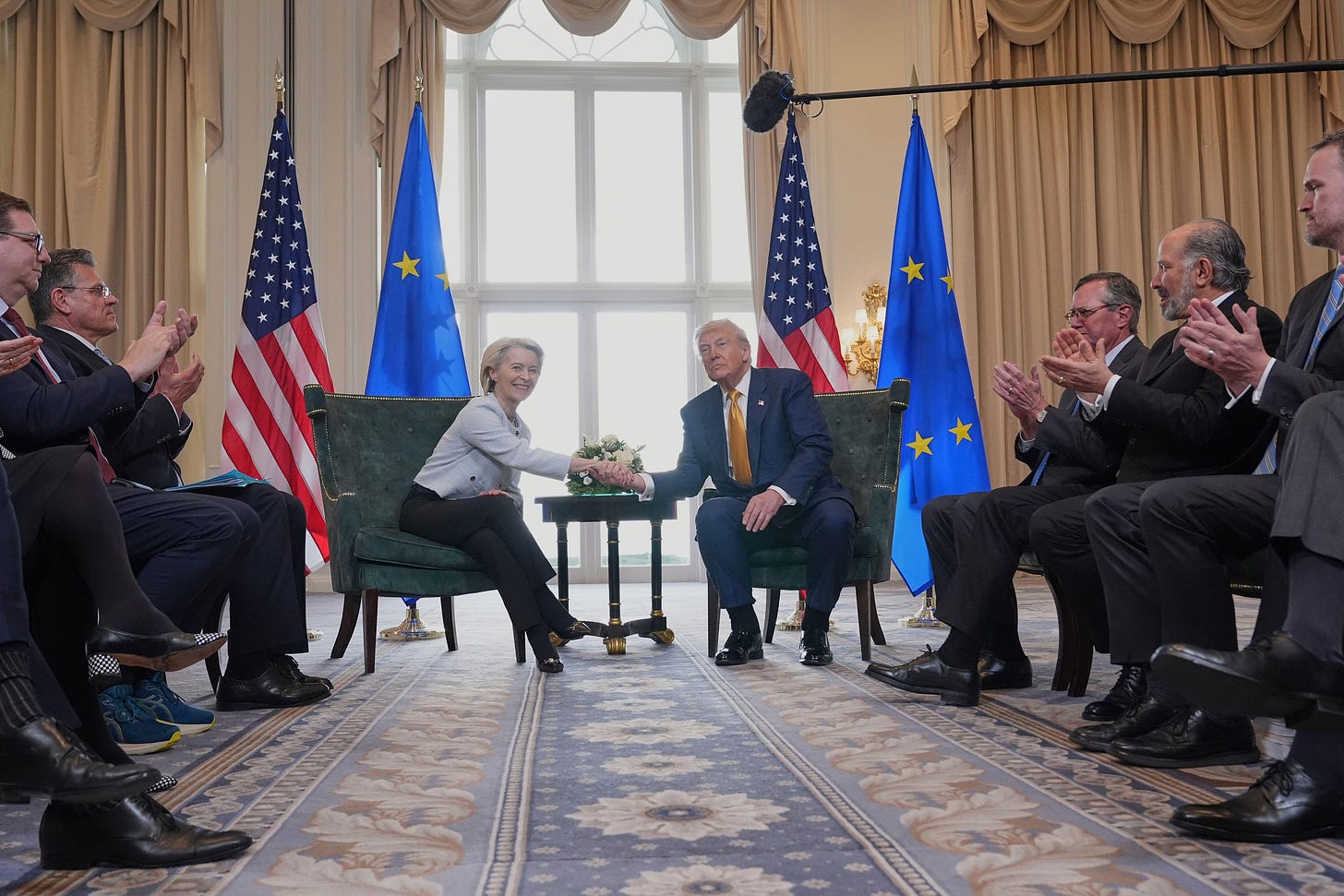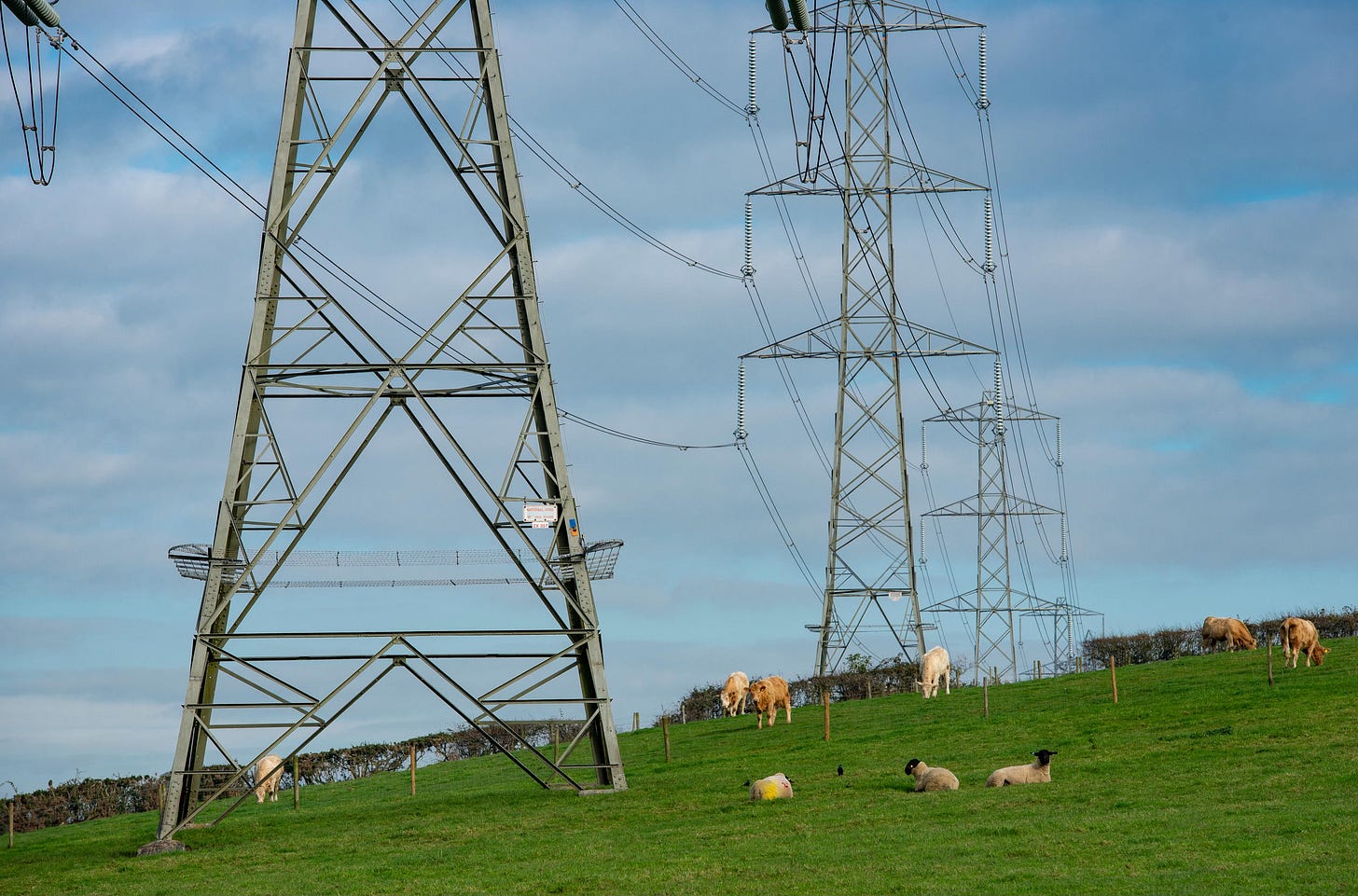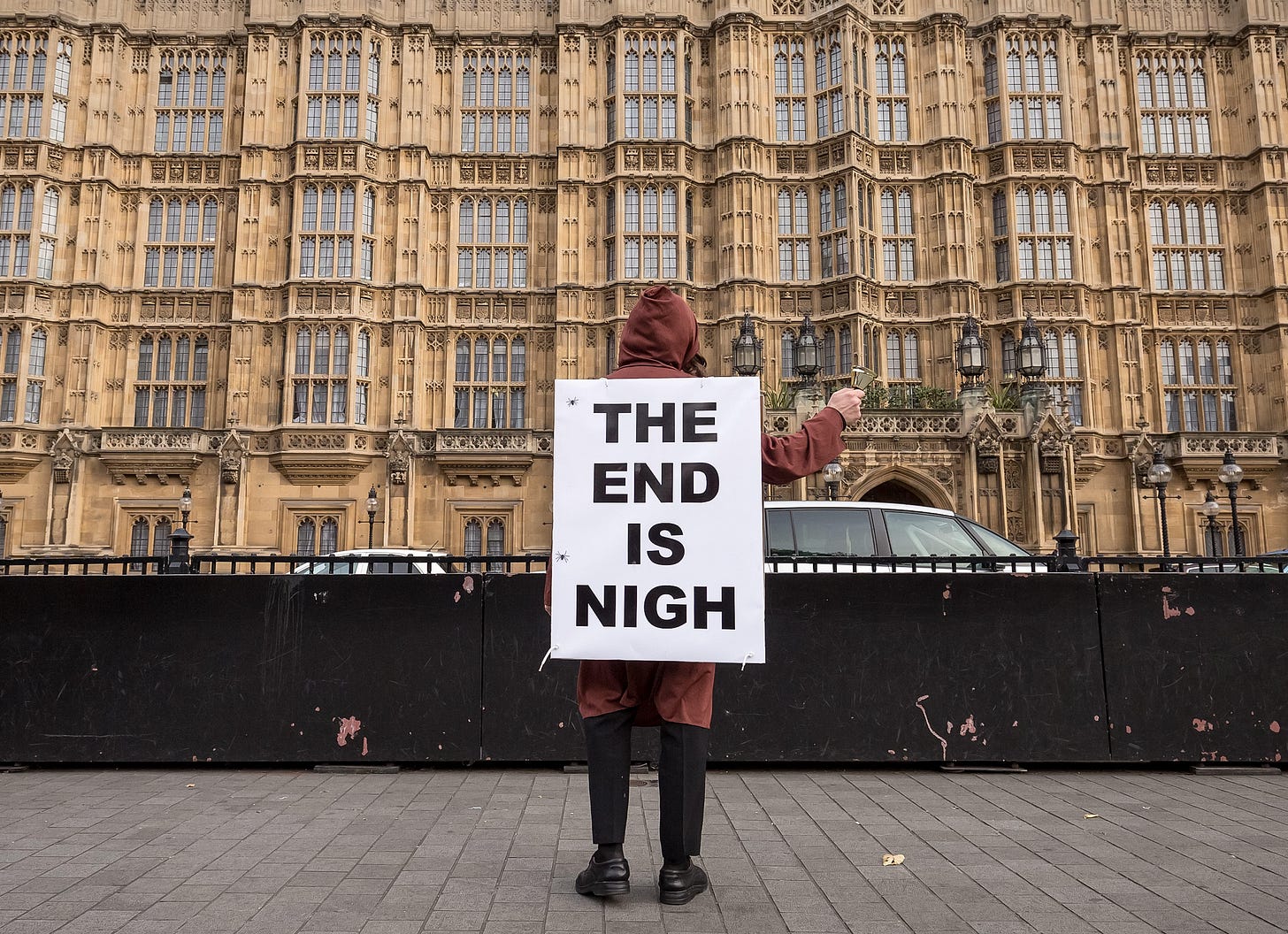
European stock markets soared to a four-month high today amid relief that a EU-US trade deal has finally been struck, but not everyone on the continent is in celebration mode.
On the contrary, French Prime Minister François Bayrou has labelled the agreement hashed out between EU Chief Ursula von der Leyen and Donald Trump yesterday in the US President’s Scottish golf resort as a “dark day” for Europe.
“An alliance of free peoples, brought together to affirm their common values and to defend their common interests,” wrote Bayrou today, has “resign[ed] itself to submission”.
That Germany’s Dax jumped by 0.86% this morning and France’s Cac 40 index by 1.1%, lifting the pan-European Stoxx 600 index to its highest level since late March, reflects relief that a ruinous trade war has been averted, putting an end to a period of crippling uncertainty.
But that’s not to say Brussels got a good deal. Bayrou isn’t the only figure voicing concern that this is a heavily asymmetrical agreement, amounting to a European surrender.
Under the deal reached between VDL and Trump, almost all EU exports to the US will be subject to a 15 per cent tariff. A zero-for-zero tariff rate will apply to several strategic products including aircraft parts, semiconductor equipment and some chemicals. The deal will also require the bloc to make big investments in American industry, and, over three years, purchase $750bn worth of US energy products such as liquefied natural gas.
While the 15 per cent rate is half of what Trump has threatened to impose on the bloc, this is still a significant climbdown from Brussels. It’s worth remembering that the EU initially responded to Trump’s “Liberation Day” tariff threats by proposing a “zero-for-zero” tariff deal on all products and threatening retaliation if Washington didn’t agree.
German Chancellor Friedrich Merz has welcomed the deal on the basis that it has “succeeded in averting a trade conflict that would have hit the export-orientated German economy hard”. But the country’s biggest industry trade association, the BDI, is unconvinced: “Even a 15% tariff rate will have immense negative effects on export-oriented German industry,” it warned today.
For a bloc that prides itself on being a trade powerhouse to have folded so easily shows that European leaders are weaker than Europe itself, say critics of the deal. Though others point out that this in part reflects fear amongst Brussels’s top brass that a deepening trade rift could prompt Trump to withdraw security guarantees for Europe.
While the EU’s perceived submissiveness hands Trump a win, the deal is not necessarily a win for American business.
As Simon Nixon points out on Wealth of Nations, one area in which the EU has stood firm is in refusing to rewrite its regulatory rulebook to benefit US companies. It refused to bow to Trump’s demands to change its digital services rules, agricultural rules or pharmaceutical pricing. “The irony”, Nixon argues, “is that this is the one thing that US companies would have most wanted out of any trade deal”. Instead, they have been hit with a massive hike in imports taxes that they are currently having to absorb through lower profits.
What’s the significance of all this for Britain? Broadly speaking, it means that the UK has secured a better trade deal with Washington – with the majority of UK goods now subject to a 10 per cent US tariff rate, compared to the 15 per cent import tax Trump is levelling at most EU products.
This disparity will create fresh complications in Ireland. But, aside from the further headache for custom arrangements in Northern Ireland, Britain’s comparatively lower tariff rate does point to a reward of Brexit. Business Secretary Jonathan Reynolds has not shied away from this: “I’m absolutely clear, this is a benefit of being out of the European Union, having our independent trade policy, absolutely no doubt about that”.
Caitlin Allen
Deputy Editor
Ian Stewart
Why Britain pays more for electricity

READ HERE
Patrick Barrow
Managerial fatalism is the defining feature of Britain’s political class

READ HERE
Victorious Lionesses celebrate at Number 10 – The England football women’s team are being hosted in Downing Street today for a special reception after winning the 2025 European Championship yesterday, beating Spain on penalties after a 1-1 draw. The back-to-back European Champions are being hosted by Deputy Prime Minister Angela Rayner and sports minister Stephanie Peacock.
Starmer recalls cabinet over Gaza – The UK Prime Minister recalled his cabinet during the summer recess today for emergency talks on the humanitarian crisis in Gaza. It comes as 14 more Palestinians died of malnutrition and Israel agreed to pause its military operations in parts of Gaza for 10 hours per day, amid international pressure to allow more aid into the enclave.
Trump threatens Putin from Scotland – After meeting with Keir Starmer on his golf course in Scotland today, Donald Trump set a new deadline of “10 or 12 days” for Vladimir Putin to agree to a deal with Ukraine or face sanctions.
Thailand-Cambodia agree ceasefire – Thailand and Cambodia have agreed to an “immediate and unconditional ceasefire”, effective from midnight, after five days of fighting at their border killed at least 33 people and displaced tens of thousands.
-
Israel’s zones of denial. David Remnick in The New Yorker.
-
Tony Lodge in The Times on how to make Great British Railways a success.
-
What does regime change in Iran look like, ask Kasra Aarabi and Saeid Golkar in Engelsberg Ideas.
-
How NASA engineered its own decline, in The Atlantic
-
Compact’s Helen Penatzer on the fatal incoherence of BRICS.
